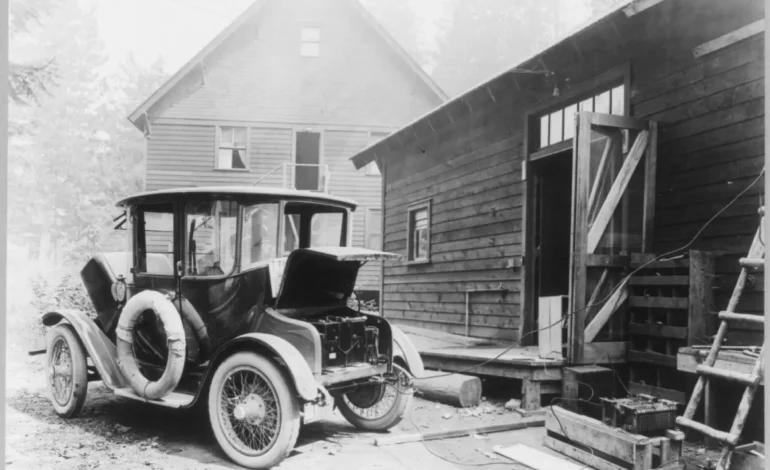Revisiting the Past: Could Electric Vehicles Face a Repeat of Their Early 20th-Century Decline?

Electric vehicles (EVs) may seem like a modern innovation, but battery-powered cars actually enjoyed significant popularity over a century ago, the New York Times reports.
Models like the Baker Electric Coupe and the Riker Electric Roadster were common sights on American roads long before Tesla and other contemporary manufacturers emerged. At one point, about one-third of New York City’s taxis were electric. Today, only a handful of these early EVs remain, with one famously preserved in Jay Leno’s extensive car collection.
These early electric vehicles were admired for their quiet operation and ease of use, but they ultimately lost favor to gasoline-powered cars such as the Ford Model T. The latter’s lower price and the growing availability of oil-based fuels made gasoline cars more practical and accessible to a broader public. Government policies in the 1920s, including federal tax incentives for the oil industry, further accelerated the rise of internal combustion engines and the decline of electric cars.
Many people today are unaware that electric cars once held a sizable share of the market. The shift away from electrics was driven by several factors, including limited access to electricity in rural areas, longer refueling times, and higher costs compared to gasoline vehicles. By the mid-1930s, electric cars had almost entirely disappeared from American streets.
Now, history appears to be repeating itself in some ways. The current political landscape in the United States is marked by efforts from the Trump administration and Congressional Republicans to reduce federal support for electric vehicles. Proposals include eliminating popular incentives like the $7,500 tax credit and imposing new fees on EV owners, while simultaneously favoring policies that support the oil and gasoline sectors.
Scholars note parallels between the early challenges faced by electric cars and the political opposition they encounter today. Both eras reveal concerns about convenience, infrastructure, and market acceptance. President Trump has publicly expressed skepticism about electric vehicles, highlighting issues like limited range and charging difficulties—concerns reminiscent of those from a century ago.
Beyond politics, electric cars have also confronted cultural hurdles. Early models were often marketed specifically to women, reinforcing stereotypes that electric vehicles were less “masculine” than gasoline cars, which were promoted for their power and noise. Today, this gendered perception has evolved but remains relevant in some political rhetoric.
Despite these challenges, the global electric vehicle market is growing rapidly, with significant sales increases in China and Europe. In the US, however, growth has been more modest, reflecting both market dynamics and shifting policy support.
Advocates argue that technological advances could overcome many of the barriers that doomed early electric cars. Faster charging times, longer ranges, and expanded infrastructure may eventually make EVs the preferred choice. As Richard Riker, descendant of one of the early electric car pioneers, suggests, breakthroughs in charging technology could render gasoline engines obsolete.









The latest news in your social feeds
Subscribe to our social media platforms to stay tuned